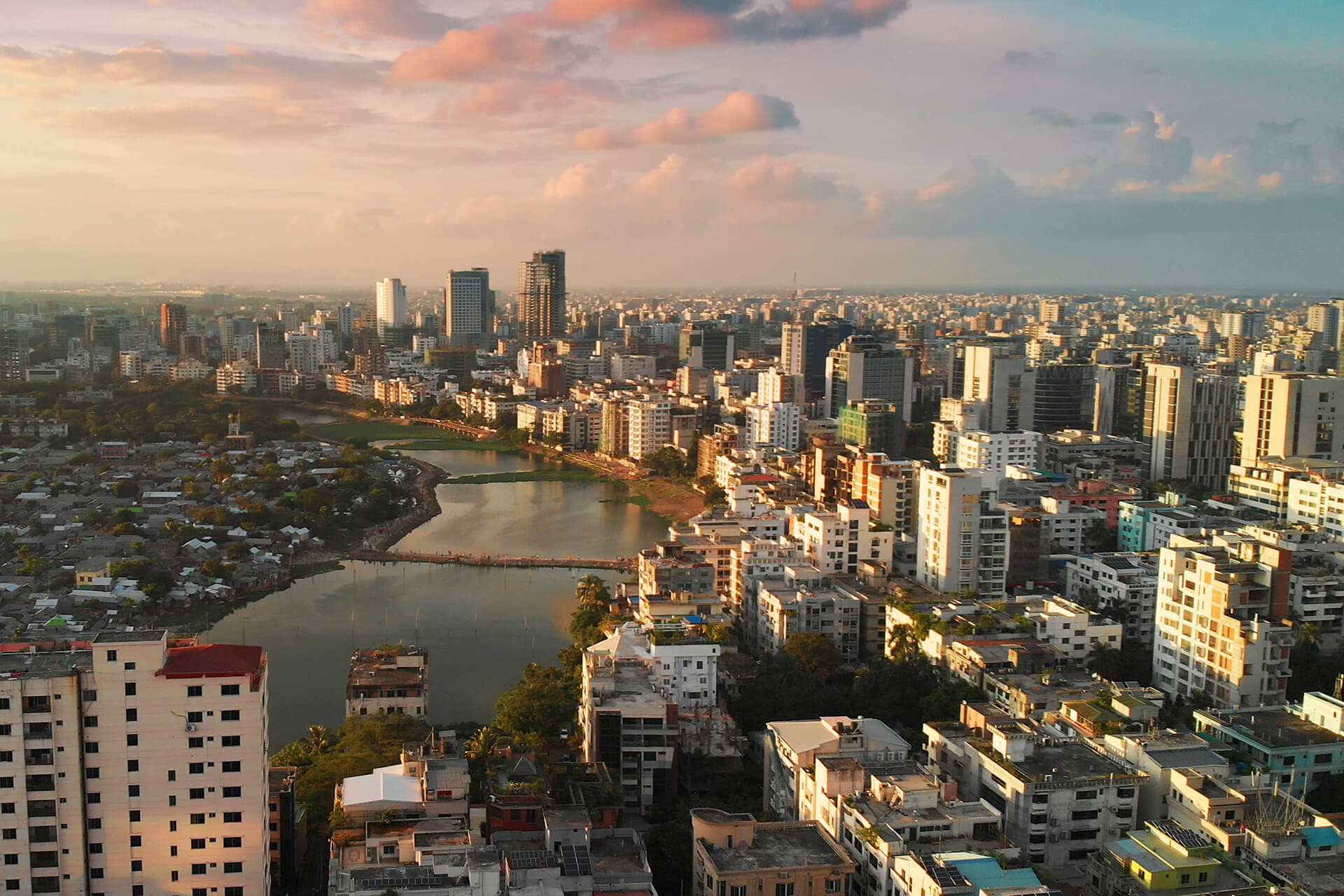Last December, India took over the G20 presidency for 2023. India has invited Bangladesh along with Egypt, Mauritius, the Netherlands, Nigeria, Oman, Singapore, Spain and the United Arab Emirates (UAE) to the G20 summit which will meet September 9–10.
India announced its goal during its G20 presidency as “Vasudhaiva Kutumbakam,” glossed in English as “One Earth, One Family, One Future.” On the surface, this seems like an agenda based on global inclusivity, but behind this are India’s far-reaching ambitions of solidifying its influence as a leader of the Global South and one of the rising powers in the world.
The invitation of Bangladesh holds special importance as this is the first time the country will attend the summit and it is also the only South Asian country to be invited this year. India has also stated that it expects Bangladesh’s “active participation” in the G20 meetings to promote the issues of mutual interest in the global arena.
Why Bangladesh?
The Modi government has dreamt big and its invitation to Bangladesh is a part of the strategy. But where does Bangladesh fit in? Why now, 18 summits after the formation of the G20? The answer lies in Bangladesh’s exponential economic growth, as well as its physical location.
Bangladesh was the 35th largest economy in 2022, with a GDP size of $460 billion. Its economy has grown 5–7% each year over the last decade (with the exception of 2020, the year of the Covid pandemic). PwC projects Bangladesh be the 23rd-largest economy by 2050. Bangladesh has passed up its larger neighbor India in many social and economic indicators. It is no tiny nation, either; with a population of 160 million people and a rapidly developing economy, Bangladesh is a potential golden goose.
Bangladesh has emerged as a regional hub for trade. Goods from China, Myanmar and elsewhere make their way from Bangladeshi ports to Nepal and Bhutan by land through India. So, investing in Bangladesh is in India’s interest to prevent China from instead consolidating influence in the region. If India is to project power globally, it must secure its own backyard by keeping its neighbors close.
In March, India and Bangladesh inaugurated the project to build the India-Bangladesh Friendship Pipeline, which will carry diesel fuel from a hub in Siliguri, India, to Parbatipur, Bangladesh. Along with Japan, the two countries held a meeting this April to discuss developing physical links between Bangladesh and Northeast India, which is landlocked and largely separated from the rest of India by Bangladesh.
Given both the lucrative opportunities for development and the increasing attention paid to the Indo-Pacific region by powers like China and the US, it is in India’s best interest to adopt a “good neighbor policy” towards Bangladesh.
Not only India has its eye on Bangladesh
Where India sees Bangladesh as both an economic and a strategic investment, other major powers have their own goals with Dhaka.
China wants Bangladesh to be a part of its expansionist string of pearls. Beijing has successfully enrolled Bangladesh into its Belt and Road Initiative. China’s non-interference policy and Bangladesh’s non-alignment policy have kept their relationship smooth. Beijing’s massive investment in Bangladesh, its extension of duty-free access to most goods from Bangladesh, the countries’ growing trade and their political collaboration on the Rohingya issue have helped bring Bangladesh closer to China.
The cooperation of countries like Bangladesh can help China both to extend its influence in South and Southeast Asia and create alternate routes to the Strait of Malacca, a choke point that is currently a major vulnerability for China.
The US has also shown a keen interest in Bangladesh, but its policies are complicated by Washington’s ever-consistent need to interfere in the internal matters of others. On one hand, the US wants Bangladesh to join the Quadrilateral Security Dialogue to restrain China’s growing influence in the Indo-Pacific. On the other hand, has targeted Dhaka with accusations about the security of its democracy. The growing frustration caused by incidents like this is pushing Bangladesh more towards China and India. Still, Bangladesh has not formally chosen sides yet.
That is plenty enough reason for the G20 to want Bangladesh at the table. As former colonies are rising as alternatives to the old powers, Bangladesh, like the rest of the Global South, finally has an opportunity to be a player instead of a pawn in the game. Dhaka must continue what it has started, build strong infrastructure, alleviate poverty and cautiously steer through the multilateral platforms like G20 to keep a good number of friends close. If Bangladesh plays its position well, it can be a real factor in the power politics of the world.
[Anton Schauble edited this piece.]
The views expressed in this article are the author’s own and do not necessarily reflect Fair Observer’s editorial policy.
Support Fair Observer
We rely on your support for our independence, diversity and quality.
For more than 10 years, Fair Observer has been free, fair and independent. No billionaire owns us, no advertisers control us. We are a reader-supported nonprofit. Unlike many other publications, we keep our content free for readers regardless of where they live or whether they can afford to pay. We have no paywalls and no ads.
In the post-truth era of fake news, echo chambers and filter bubbles, we publish a plurality of perspectives from around the world. Anyone can publish with us, but everyone goes through a rigorous editorial process. So, you get fact-checked, well-reasoned content instead of noise.
We publish 2,500+ voices from 90+ countries. We also conduct education and training programs
on subjects ranging from digital media and journalism to writing and critical thinking. This
doesn’t come cheap. Servers, editors, trainers and web developers cost
money.
Please consider supporting us on a regular basis as a recurring donor or a
sustaining member.
Will you support FO’s journalism?
We rely on your support for our independence, diversity and quality.







Comment